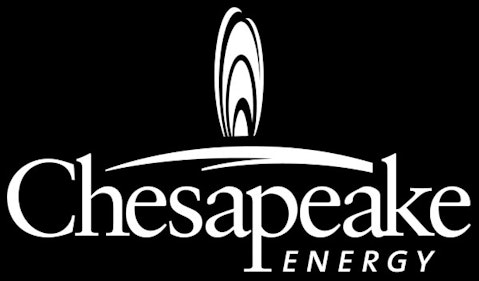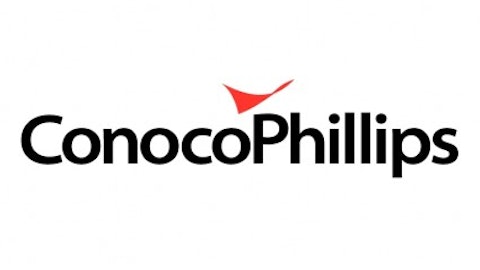Chesapeake Energy Corporation (NYSE:CHK), the Oklahoma City-based oil and gas producer, recently got a new CEO. After months of searching for Aubrey McClendon’s replacement, the company chose Robert Douglas (“Doug”) Lawler, who previously led Anadarko Petroleum Corporation (NYSE:APC)‘s successful international and deepwater business, as chief executive.
His appointment to the top position at Chesapeake was generally well received, with most analysts expressing optimism about his ability to lead the company forward as it embarks on what it hopes will be a new era of value realization and shareholder returns.
But while there’s not much doubt about Lawler’s experience and abilities, is Chesapeake Energy Corporation (NYSE:CHK) paying him too much?
A generous pay package
According to a recent SEC filing, Lawler’s pay package at Chesapeake this year will be at least $22 million. He will receive a base annual salary of $1.25 million, a prorated cash bonus of at least $800,000, and an additional signing bonus of $4.5 million, of which $2 million will be awarded in cash and $2.5 million in stock awards. And that’s not all.
He’ll receive $10.5 million in shares, vested in equal installments over three years, as well as an additional $5 million in stock awards to compensate for the loss of his pension from his previous employer Anadarko. Moreover, if he stays on as chief executive for five years, he’ll get another $5 million worth of shares. And if he achieves his bonus targets, he stands to make even more.
Not only is Lawler’s total compensation more than Chesapeake Energy Corporation (NYSE:CHK)’s former CEO got paid last year, it’s also noticeably more than the chief executives of other energy companies with similar market capitalizations.
Comparing CEO compensations
Last year, McClendon received a base salary of $975,000 and a total compensation of $16.9 million. Meanwhile, chief executives atEnCana Corporation (USA) (NYSE:ECA) and Southwestern Energy Company (NYSE:SWN), two natural gas producers with very similar market capitalizations, had substantially smaller pay packages last year.
Randall K. Eresman, Encana’s former CEO, received $7.2 million in compensation for heading up a company with a roughly $13 billion market cap, only slightly less than Chesapeake Energy Corporation (NYSE:CHK)’s $13.5 billion, while Steve Mueller, CEO of Southwestern Energy, which has a market cap of just under $13 billion, got about $5.6 million.
Meanwhile, John Richels of Devon Energy Corp (NYSE:DVN), an energy producer with a market cap of nearly $22.5 billion, took home $12.8 million last year, not including the rise in the value of his pension. Even Ryan Lance, who heads up ConocoPhillips (NYSE:COP), which has a market cap more than five times that of Chesapeake’s, only took home $19.3 million last year.
In fact, Lawler’s $22 million package is even more than the $20.8 million SandRidge Energy Inc. (NYSE:SD)’s CEO Tom Ward – who has come under heavy fire for his alleged failings in leading the company he founded – took home last year. Despite SandRidge’s lackluster earnings growth and dismal stock performance, Ward got a total compensation of $25.2 million in 2011, which placed him among the highest-paid energy CEOs that year.
Is Lawler overpaid?
Though compensation comparisons may suggest otherwise, the generous pay package offered to Lawler may simply reflect how difficult it has been for Chesapeake Energy Corporation (NYSE:CHK) to find someone to replace McClendon.
Clearly, he left the company in a pretty precarious position, with a worryingly high level of long-term debt and a sizable cash flow shortfall. To combat these problems, Chesapeake has been forced to sell a ton of assets in a short period of time. Low natural gas prices and disappointing prices for some of its assets have further exacerbated the company’s woes.
Given this backdrop, the $2 million cash signing bonus and $12.5 million of shares awarded to Lawler may have been necessary to attract the caliber of executive the company needs to help it bounce back, especially after earlier talks between the company and a promising candidate quickly fizzled out.
The article Is Chesapeake’s New CEO Overpaid? originally appeared on Fool.com.
Fool contributor Arjun Sreekumar owns shares of Chesapeake Energy, Devon Energy, and SandRidge Energy (NYSE:SD). The Motley Fool owns shares of Devon Energy and has the following options: Long Jan 2014 $20 Calls on Chesapeake Energy, Long Jan 2014 $30 Calls on Chesapeake Energy, and Short Jan 2014 $15 Puts on Chesapeake Energy.
Copyright © 1995 – 2013 The Motley Fool, LLC. All rights reserved. The Motley Fool has a disclosure policy.






